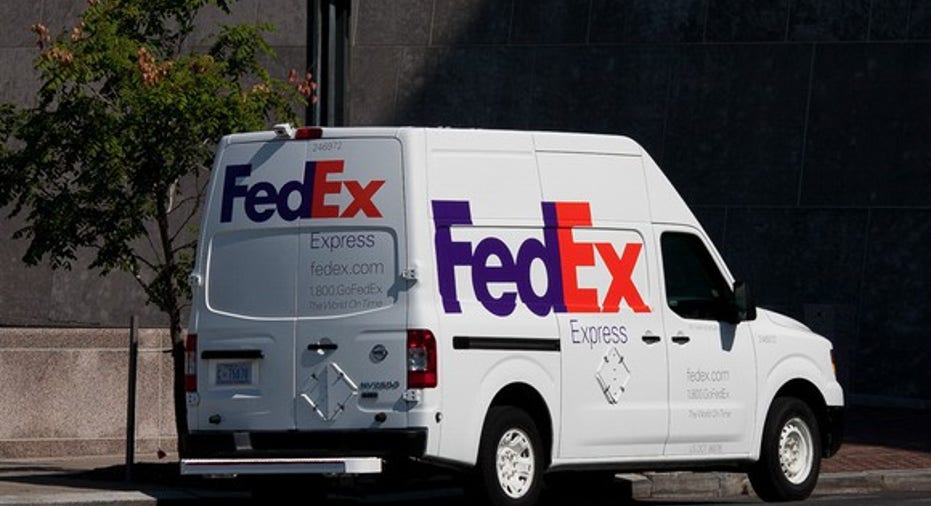5 Highlights From FedEx's Q1 Earnings Call

Last week, FedEx (NYSE: FDX) reported better-than-expected earnings for the first quarter of its 2017 fiscal year. Revenue leaped nearly 20% due to the acquisition of TNT Express, while growth in FedEx's ground business and margin improvement in the express business powered net income higher.
Following the earnings release, FedEx's management discussed the integration plan for TNT Express and the company's plans to keep the ground business growing while improving efficiency. Here are five key highlights from the earnings call.
Significant synergies expected from TNT Express
FedEx has had high hopes for its TNT Express acquisition from the beginning. However, the company hadn't shared specific targets until last week. On the earnings call, FedEx revealed that it expects to capture merger synergies of about $750 million by fiscal 2020 by becoming more efficient.
FedEx expects total merger synergies of $750 million. Image source: The Motley Fool.
This could lift earnings per share by about $1.80 over the next few years. Including FedEx's other profit growth opportunities, EPS could jump 50% by fiscal 2020. To attain these benefits, FedEx will incur $700 million to $800 million in integration costs, plus additional integration-related capital spending over the next four years.
Strong growth continues at FedEx Ground
The ground delivery business has been FedEx's primary growth driver for many years, largely due to rising e-commerce shipment volumes. That continued last quarter, with FedEx Ground revenue up by double digits once again.
Last quarter, the ground segment's operating margin also improved year over year, as lower self-insurance costs offset the cost of network expansion. This was a pleasant surprise, but FedEx's management warned investors that it won't last -- year-over-year margin comparisons will be tougher for the rest of the year.
Meeting the changing needs of e-commerce
As e-commerce has taken off in the past few years, consumers have started ordering larger and larger items over the internet. At times, handling oversize shipments has been challenging for FedEx, as its ground delivery business was originally designed to deliver much-smaller parcels.
To some extent, FedEx has addressed this problem by raising its surcharges for bulky shipments. However, it is also experimenting with new equipment and facilities that are better able to handle oversize items. This is important, as the trend toward more oversize shipments seems likely to continue for the foreseeable future.
Making the ground business more efficient
During the earnings call, the head of FedEx's ground business described a number of major initiatives that could have a transformative effect on efficiency during the next few years. These initiatives include organizational restructuring, new facilities, and IT investments.
For most of these changes, FedEx will incur some up-front costs. That's why the ground segment's profit margin has been under pressure for the past year or so. However, as these investments tail off and shipment volumes continue to rise, ground segment profitability should improve dramatically.
Investments will moderate -- eventually
FedEx's capital expenditure budget has risen rapidly in recent years. As recently as fiscal 2014, annual capital spending was $3.5 billion. For fiscal 2017, FedEx expects to spend a whopping $5.6 billion on capex. That would represent nearly 10% of its annual revenue.
This year, FedEx will spend about $2 billion on its ground business alone to pay for the facilities and IT investments needed to unlock the efficiency benefits discussed above. It also needs to put a lot of money into updating the IT infrastructure of TNT Expresswhile continuing to modernize the FedEx aircraft fleet.
However, in the long run, FedEx's management believes that capital spending will decrease to a range of 6%-8% of revenue. As capex starts to moderate in the coming years, FedEx's free cash flow will surge higher.
A secret billion-dollar stock opportunity The world's biggest tech company forgot to show you something, but a few Wall Street analysts and the Fool didn't miss a beat: There's a small company that's powering their brand-new gadgets and the coming revolution in technology. And we think its stock price has nearly unlimited room to run for early in-the-know investors! To be one of them, just click here.
Adam Levine-Weinberg has no position in any stocks mentioned. The Motley Fool owns shares of and recommends FedEx. Try any of our Foolish newsletter services free for 30 days. We Fools may not all hold the same opinions, but we all believe that considering a diverse range of insights makes us better investors. The Motley Fool has a disclosure policy.



















